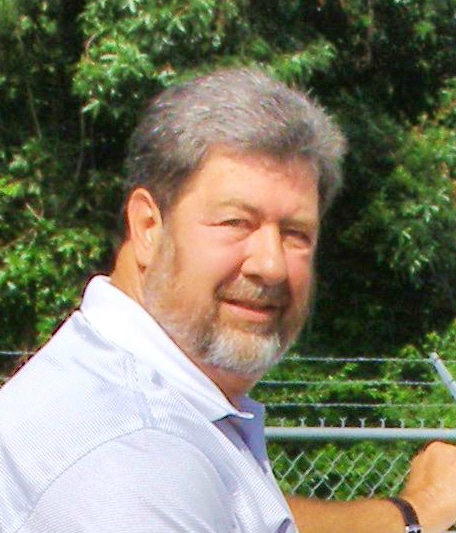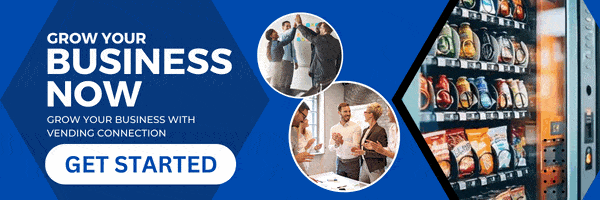Canteen Franchise Reaches Nearly 100% Cashless Machines; Big Competitive Advantage
 Rawls Distributing, a Canteen franchise in Savannah, Ga., has nearly doubled the number of machines equipped with cashless capability this year, making almost all 1,400 of its machines cashless capable. Owner Robin Rawls looks back on his decision to go cashless six years ago as one of the best business decisions he ever made.
Rawls Distributing, a Canteen franchise in Savannah, Ga., has nearly doubled the number of machines equipped with cashless capability this year, making almost all 1,400 of its machines cashless capable. Owner Robin Rawls looks back on his decision to go cashless six years ago as one of the best business decisions he ever made.
Rawls Distributing has experienced the power of cashless payment, wireless DEX data and new efficiency services delivered by USA Technologies (USAT), Malvern, Pa., VendSys, Quincy, Mass., and LightSpeed Automation, Alpharetta, Ga.
Rawls has found the telemetry capability that supports cashless vending brings the added benefit of supporting wireless DEX data management. The DEX data allows item level reporting, which in turn provides more accurate forecasting and enables the company to pre-kit deliveries. The USAT ePort devices send the DEX data to the VendSys hosted server. DEX-based prekitting allows higher sales and more efficient machine servicing.
Prekitting has allowed the company to consolidate routes. Prior to introducing wireless telemetry, the company operated 14 routes. Rawls Distributing now does more sales with nine routes.
Introducing the USAT cashless readers was a critical step when Rawls decided to invest in cashless in 2010. Cashless sales now account for 30 percent of all vending sales.
Rawls has learned that customers take close to a year to fully exercise the cashless option. Once they do, he can expect to see a minimum 25 percent boost in sales. Customers are usually willing to spend more with a credit card than with cash, and they are more prone to purchase more than one items with a card.
The company has signed up for USAT’s Premier Support Services offerings, which provides companies access to a bundle of support services including deployment planning, project management, installation support, training of staff, the marketing of cashless, mobile payment and loyalty programs and funding support.
Rawls attended Stetson University from 1974 to 1977 and began working in the vending division of Tom’s Foods, Inc. He spent 10 years as a regional manager before purchasing the local Savannah Tom’s Foods distributorship. He started Rawls Distributing Company in 1987 and today heads what has become the largest and most technically advanced snack company in the Savannah area.
Following are Rawls insights on his decision to go 100 percent cashless.
Q: How did you decide to invest in cashless vending?
A: I realized that everyone was starting to use credit cards and debit cards to pay for things. Customers were telling me they wanted to pay for items from vending machines with credit and debit cards. With more consumers demanding card and mobile payment technology, it only made sense that we complete our transition to cashless on every one of our machines. One of my peers, Vic Pemberton (owner of Pepi Food Services, a Canteen franchisee in Dothan, Ala.) was doing it. He suggested I try it. I tried it, and customers loved it.
Q: How many machines did you start with?
A: We tried it in a few machines. We had USAT install the ePort cashless system. USAT performed an evaluation on our initial deployments. They found that consumers were spending more when they paid with cards compared to cash. The data indicated there was additional spending from the ability to purchase multiple items with a single swipe of a card. Purchases of higher-priced items accounted for additional spending. USAT then took all of our business data and developed a plan based upon projected incremental net operating profit for cashless vending plus wireless DEX. It also factored in net operating profit calculated from incremental sales increase projections. We were surprised by the results. In our first year, we installed 100 machines with cashless readers.
Q: Did the cashless readers improve sales in all the locations?
A: Yes. We have military bases, universities, hospitals, Home Depots, the Georgia Port Authority, manufacturing plants, you name it. In military bases, the service people don’t have cash. The colleges are always pushing for innovations and things to make it easier for their
students to buy things. The college students don’t have cash.
Q: How much does it cost to retrofit a machine with a cashless reader?
A: It depends on how old the machine is. For machines that need a new control board, it will cost a total of $1,000 for the control board, the reader, the MDB changer and bill validator.
Q: What’s the hardest part of installing cashless readers?
A: Being able to afford the equipment. In our first year, we used the USAT QuickStart program (a lease-to-own program). For someone just starting out, having people who understand how the reader operates is important.
Q: In the past year, you almost doubled the number of cashless machines. That must have been a big investment.
A: I purchased 750 readers. It was actually cheaper to buy the readers than it is to lease them. I took out a five-year loan. Four hundred to five hundred readers are still on lease and 900 are now owned. Every single machine will have cashless on it. Even if it does $10 a month it’s going to have a card reader on it.
Q: Have there been any problems with wireless signals?
A: We haven’t had any problems. If you go into a facility with concrete walls, you’ll need an extender to boost the signal. Verizon is our carrier. All the carriers’ signals have gotten stronger over the years.
Q: Have the readers been reliable?
A: We don’t have a whole lot of problems with the readers.
Q: Has having all these cashless machines been a competitive advantage for you?
A: This is absolutely a competitive advantage. Without a doubt. My competitors do not see the card reader’s advantage.
Q: The card readers accept payments from Apple Pay and Google Pay. What is the breakdown between mobile payments and card payments?
A: I have no way of knowing that.
Q: In the last year, some vending operators started to receive chargeback fees on transactions where an EMV (Europay, MasterCard and Visa) “chip” card was used with a non-EMV reader. Have you experienced any chargeback fees?
A: No, I have not. Nor do I know any vending operator who has experienced this.
Contact Robin Rawls at Rawls Distributing-Savannah, Georgia (912)-233-5200
Source: Vending Technology News June, 2016.
![]() Vending Technology News | More News | Vending Newsletter sign up | Questions? Contact us | email press release
Vending Technology News | More News | Vending Newsletter sign up | Questions? Contact us | email press release
Also see: Software Companies | Technology Companies | Micro Markets | Cashless Vending | Distributors | Classified Ads | Home |
VENDING YELLOW PAGES DIRECTORIES:
Call us at 1-800-956-8363, POST YOUR COMPANY




